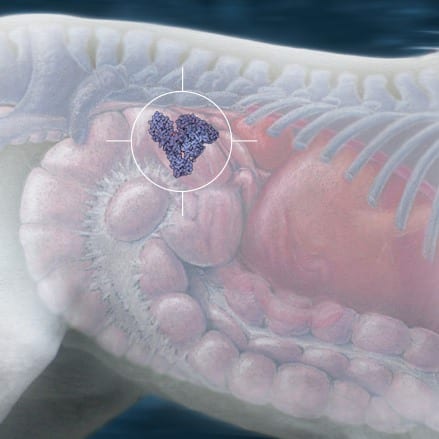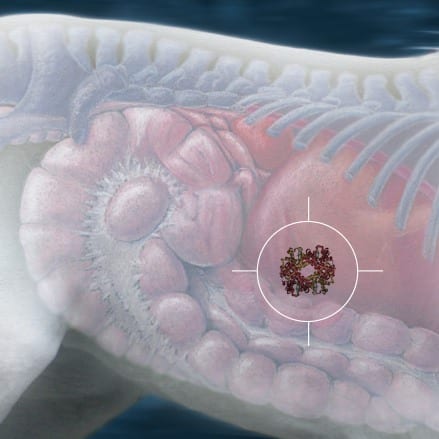The test identifies components of blood in your horse’s fresh fecal sample, pointing to a problem in the foregut, hindgut or both.
Using Antibodies to Detect Blood Components in Horses’ Feces
The SUCCEED FBT is a color change test based on the reaction of antibodies to the presence of equine blood components hemoglobin and albumin. Color lines appear on the FBT strips when albumin or hemoglobin are present at levels that fall within a range carefully calibrated to reflect true pathological conditions.

Albumin as an Indicator of Hindgut Injury in Horses
Albumin is a protein that is free-floating in blood plasma. While it is present any time there is a bleeding injury, it may also be released through smaller injuries that only seep plasma.
Additionally, albumin is digested by bile and proteolytic enzymes in the small intestine. As a result, albumin present in a horse’s feces would primarily originate from the hindgut.
Thus, fecal albumin is a good indicator of hindgut ulcers.

Hemoglobin as an Indicator of GI Injury in Horses
As a component of red blood cells, hemoglobin is always present any time there is an injury that produces whole blood. While hemoglobin may be somewhat degraded in the digestive process, it is at a much lower rate than albumin. When bleeding occurs in a horse’s gut, some of the blood is degraded, leaving the rest to move through the digestive tract until it is expelled in the horse’s feces. Therefore, hemoglobin in a horse’s feces could have originated from anywhere within the GI tract.
Hemoglobin is present only with the presence of whole blood. Therefore, a He positive indicates a lesion or condition where active vascular bleeding is occurring.
